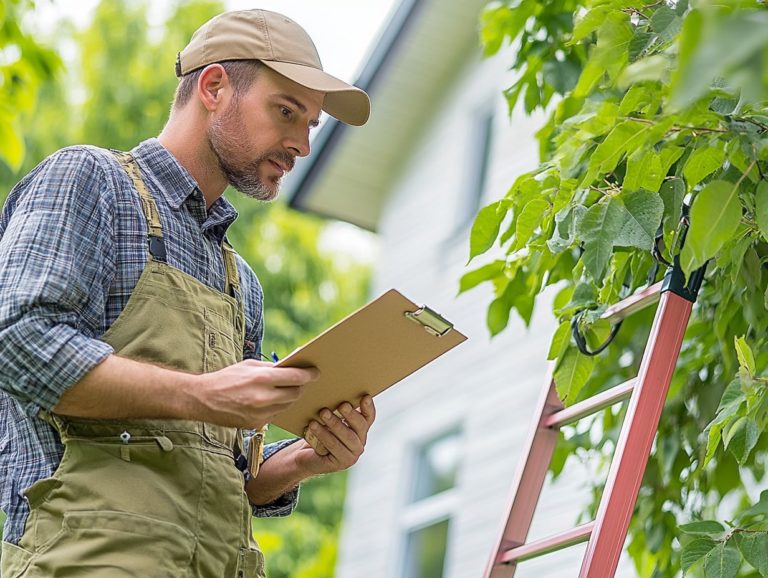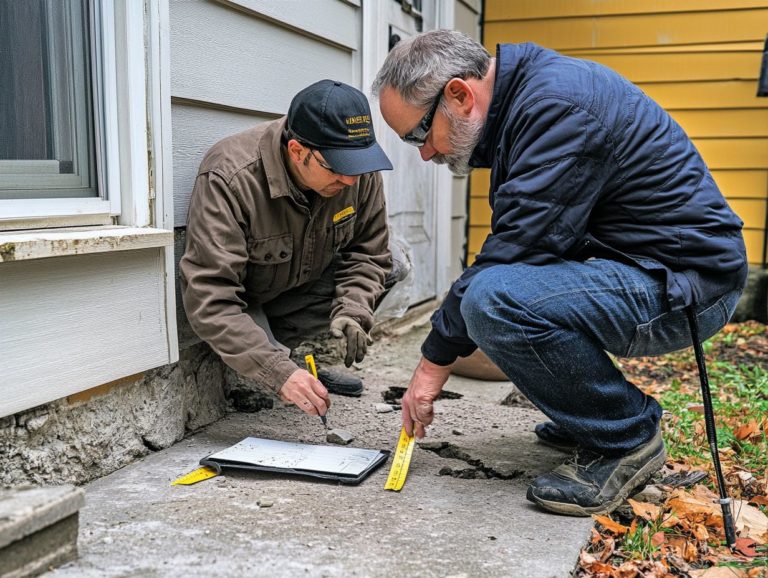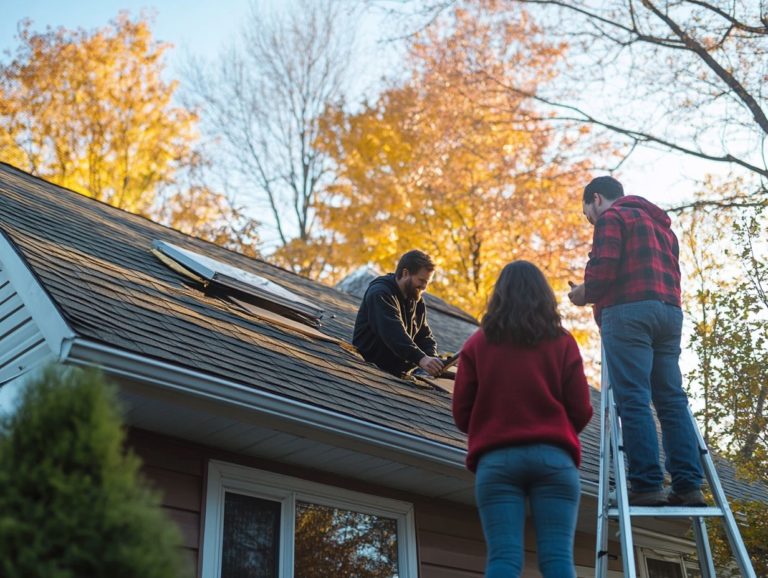The Importance of Home Inspections for Real Estate Transactions
Buying a home is one of the most significant investments you ll make. Understanding home inspections is essential.
This guide explains what a home inspection is and its vital role in real estate transactions. It highlights common issues that may arise and offers expert tips for a smooth experience.
Whether you re a buyer or a seller, knowing the importance of home inspections can save you time and money. It s a crucial part of your real estate journey.
Contents
- Key Takeaways:
- Understanding Home Inspections
- The Home Inspection Process
- Steps Involved in a Home Inspection
- What to Expect During the Inspection
- Common Issues Found During Home Inspections
- How Home Inspections Can Affect Real Estate Transactions
- Tips for a Successful Home Inspection
- Frequently Asked Questions
- What is the importance of home inspections in real estate transactions?
- Who is responsible for arranging a home inspection?
- What does a home inspection cover?
- Can a home inspection affect the sale of a property?
- Do I need to be present for the home inspection?
- What if the home inspection reveals major issues?
Key Takeaways:
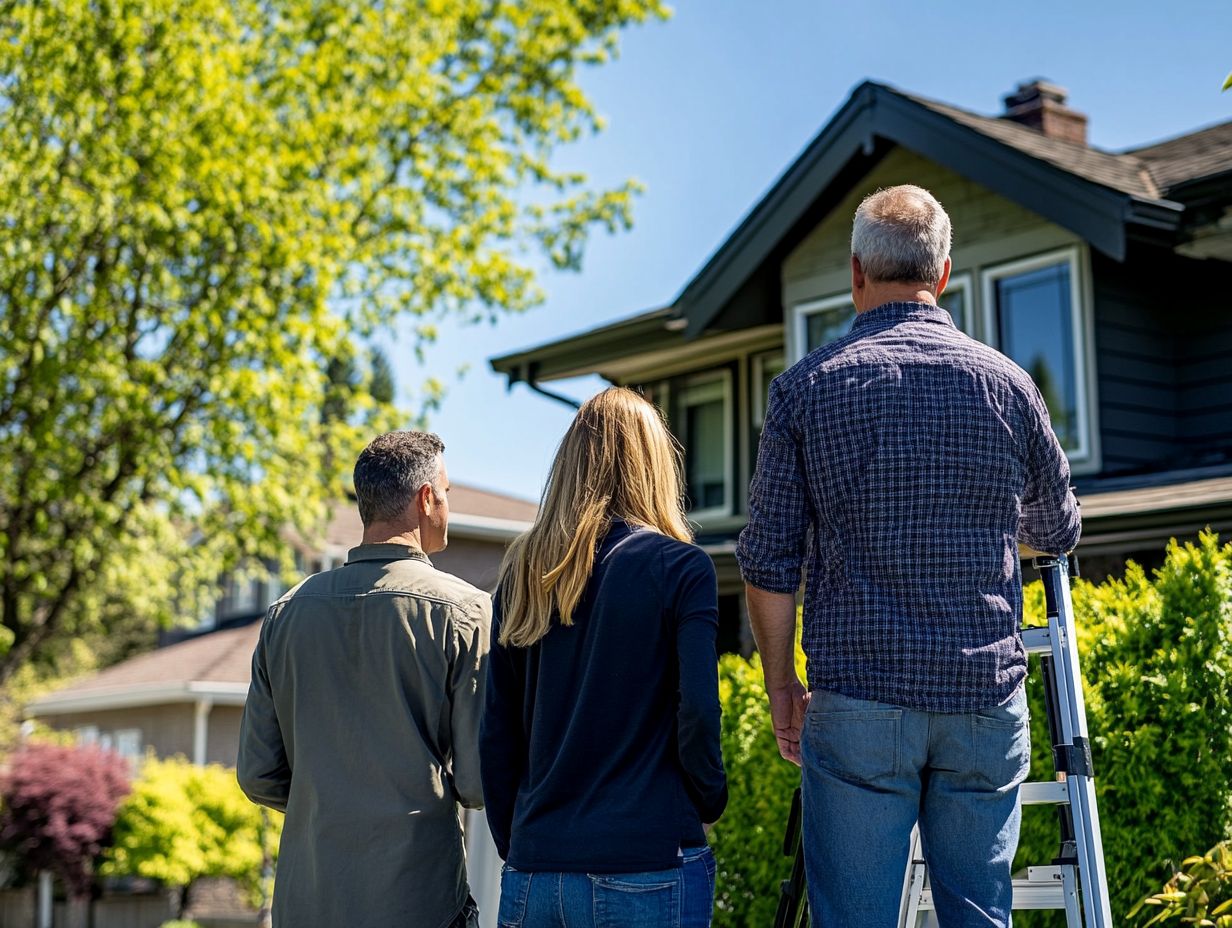
Home inspections are vital in real estate transactions. They reveal potential problems with a property and protect buyers from unforeseen costs.
The inspection process involves checking the property’s structure, electrical and plumbing systems, and identifying potential red flags.
Home inspections can greatly influence transactions, as they highlight the importance of home inspections in property sales. They allow for negotiations on repairs and price adjustments, possibly avoiding deal breakers.
Understanding Home Inspections
Understanding home inspections is crucial when buying or selling a property, as they highlight the key role of home inspections in real estate and reveal the true condition of a home.
A comprehensive inspection provides clarity about safety and integrity issues, from heating, ventilation, and air conditioning systems to the foundation.
This knowledge lets you navigate the transaction confidently, trusting the information provided throughout the process.
What is a Home Inspection?
A home inspection is a detailed check of a property’s condition by a licensed inspector. This careful evaluation uncovers any issues or maintenance needs.
Inspectors assess the structural integrity of the roof, walls, and foundation. They check plumbing systems for leaks and ensure electrical systems are safe.
Inspectors also look for safety risks like mold or pest infestations. This thorough check gives important information for buyers and sellers, aiding informed decision-making.
Why is it Important in Real Estate Transactions?
Home inspections are crucial in real estate transactions, as they highlight the importance of home inspections in property transactions, providing transparency about a property’s true condition for buyers and sellers.
These assessments protect buyers from unexpected issues that could cause financial headaches. For sellers, they highlight necessary repairs before listing the property.
Identifying challenges early helps sellers make informed choices, enhancing market appeal. Insights from inspections can shift negotiation dynamics and foster trust.
This sense of security boosts market confidence, giving buyers the power to make informed decisions and invest wisely.
The Home Inspection Process
The home inspection process is a structured approach to evaluate a property’s condition. It involves essential steps that lead to thorough assessments and valuable insights for all parties in a transaction.
Steps Involved in a Home Inspection
Home inspections typically unfold through a structured series of steps that guarantee a careful check of the property, beginning with preliminary discussions and culminating in a comprehensive report of findings.
Your initial preparation involves coordinating an appointment that suits you and the inspector. This often includes a list of necessary disclosures and relevant documents.
Once on-site, the inspector conducts an exhaustive assessment, carefully examining significant components such as the roof, plumbing, electrical systems, and foundation. The inspector takes notes and photographs to document any issues discovered during the inspection.
After completing the assessment, the inspector compiles a detailed report that highlights key findings, addresses potential safety concerns, and offers suggestions for repairs. This report provides you with a clear understanding of the property s condition, giving you the power to make informed decisions moving forward.
What to Expect During the Inspection
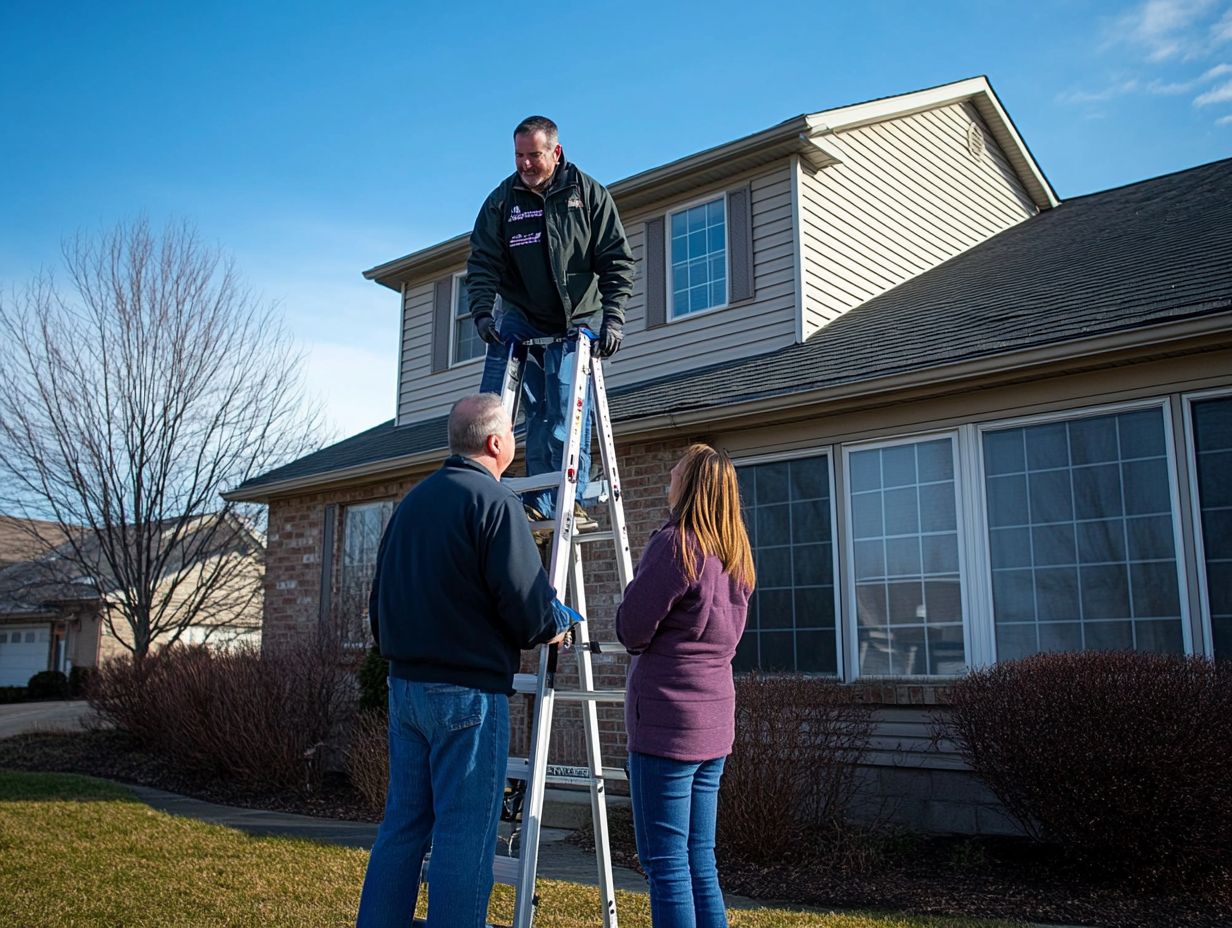
During a home inspection, you can expect a thorough evaluation of the property. The inspector will scrutinize various systems and components to uncover any safety hazards or maintenance issues.
This typically involves a careful check of the roof, plumbing, electrical systems, HVAC units, and the foundation. Inspectors strive to provide a clear and honest assessment of the property s condition, often delivering a detailed report that outlines their findings and includes photographs for added clarity.
It s essential for everyone involved in the transaction to be present during this evaluation. This presence fosters real-time communication and offers an invaluable opportunity to ask questions about any potential concerns.
By grasping the specific issues firsthand, you can engage in a more informed negotiation process, ultimately paving the way for a smoother closing experience.
Common Issues Found During Home Inspections
Common issues uncovered during home inspections can profoundly affect real estate transactions.
Structural problems, electrical and plumbing issues, and various other red flags can present significant challenges for both buyers and sellers.
Being aware of these potential pitfalls is crucial in navigating the complexities of the market.
Structural Problems
Structural problems are among the most serious issues you might encounter during a home inspection. They are often tied to the foundation and overall safety of the property.
You may notice these issues manifest in various ways: cracks in the walls, uneven flooring, or doors that refuse to close properly. All of these can signify potential underlying concerns.
These structural deficiencies not only jeopardize the integrity of the building but also cast a long shadow over the property s value. They can make it challenging to secure financing or attract buyers.
Homes with unresolved structural issues can pose significant safety risks, leading to costly repairs down the line. Therefore, understanding these problems is essential for you as a current or prospective homeowner.
Act quickly to prevent further issues and protect your investment!
Electrical and Plumbing Issues
Electrical and plumbing issues uncovered during home inspections can present serious safety hazards. They directly impact the livability of the property and demand your immediate attention.
Don’t ignore these problems! They can lead to serious issues, including the risk of fires or water damage, which can significantly diminish your home’s value.
During inspections, experts meticulously search for common electrical faults, like outdated wiring or overloaded circuits, as well as plumbing concerns such as leaks and inadequate drainage.
Identifying these issues early not only safeguards the well-being of the occupants but also preserves the integrity of the home’s structure.
Taking the proper remediation steps like rewiring or replacing problematic pipes is essential to mitigate these risks and enhance overall functionality.
Other Red Flags to Look Out For
Home inspections often uncover various red flags, such as mold, termites, and problems with the building structure or systems, which can dissuade potential buyers.
These issues pose health risks and lead to costly repairs. They can also complicate negotiations between buyers and sellers. For instance, if mold is found, a buyer might insist on extensive remediation before moving forward, while sellers may feel pressured to lower their asking price.
To navigate these challenges effectively, it s wise for both parties to consider proactive measures like pre-inspections and thorough disclosures. Educating clients about potential issues fosters trust and facilitates smoother transactions, ensuring that everyone is well-informed about the property s condition and the implications of inspection findings.
How Home Inspections Can Affect Real Estate Transactions
Home inspections significantly influence real estate transactions. They can shape negotiations, prompt necessary repairs, and highlight the importance of home inspections in real estate deals, potentially resulting in price adjustments that reflect the property’s true condition.
Negotiating Repairs and Price Adjustments
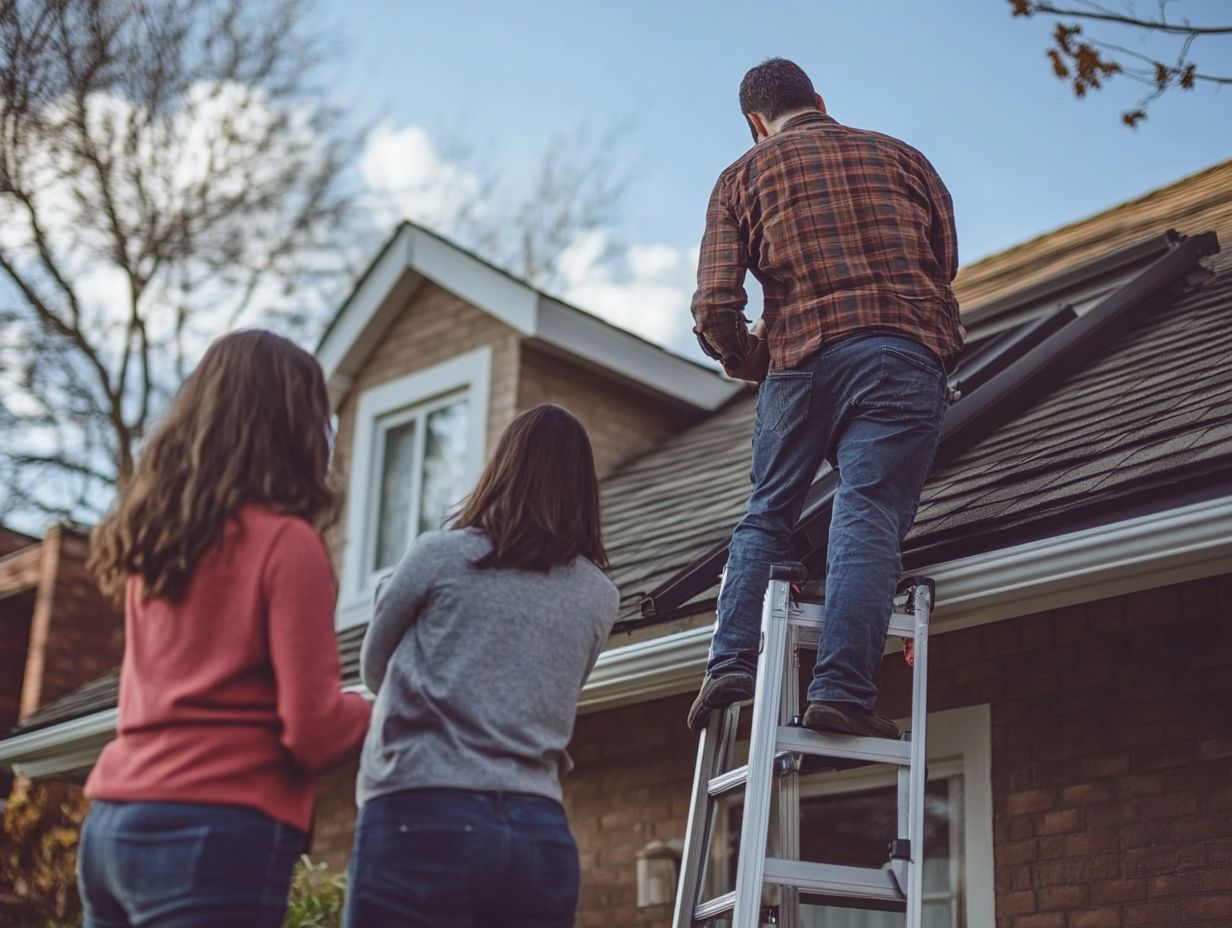
Negotiating repairs and price adjustments is crucial after a home inspection. You may find yourself requesting essential repairs or concessions based on the inspector’s findings.
At this point, you and the other party must find common ground, ensuring the sale continues smoothly while addressing significant issues that have come to light.
As a seller, it’s advantageous to know what typical negotiations entail. This knowledge allows you to respond to repair requests with well-considered justifications or appealing alternatives that resonate with buyers.
On the flip side, as a buyer, come prepared with a solid understanding of the property s value and the estimated costs for the requested repairs. This knowledge strengthens your position.
Through open dialogue, both sides can create a collaborative atmosphere, ultimately forging an agreement that serves everyone’s best interests.
Potential Deal Breakers
Certain issues uncovered during home inspections can easily become deal breakers. These problems might prompt you to rethink your offer or leave sellers reconsidering their willingness to negotiate.
For example, serious structural damage, outdated electrical systems, or plumbing failures raise significant safety concerns and lead to inflated future repair costs.
You might hesitate to invest in a property where major issues have come to light, worrying about long-term financial repercussions. Conversely, sellers may find themselves in a tough spot if repairs are extensive. They might have to lower their asking price to attract buyers or invest in costly renovations, which don t always guarantee a quick sale.
You must handle these findings carefully to reach a resolution that works for everyone.
Tips for a Successful Home Inspection
To guarantee a successful home inspection, follow these essential tips:
- Prepare the home meticulously.
- Select a qualified inspector with a deep understanding of the local market and its unique requirements.
By adopting this approach, both buyers and sellers can navigate the inspection process with confidence.
Preparing the Home for Inspection
Preparing your home for inspection is crucial as it can lead to a smoother process and increase the likelihood of a favorable evaluation.
To achieve optimal results, start by thoroughly cleaning your home, especially in the kitchens and bathrooms. A tidy environment leaves a positive impression on inspectors and showcases your property s true potential.
It s wise to tackle minor repairs such as fixing leaky faucets, patching holes in walls, and replacing old light bulbs. Ensuring easy access to all areas, including basements, attics, and garages, is essential. This allows inspectors to conduct a comprehensive assessment without any issues.
By taking these proactive steps, you can facilitate a seamless inspection process and potentially enhance your home s value.
Choosing a Qualified Inspector
Choosing the right inspector is essential for buyers and sellers. Their expertise can greatly impact the reliability of your home inspection findings, making it crucial to understand the importance of a home inspection for buyers.
Here are some key criteria to consider when looking for an inspector:
- First, confirm that the inspector has the right licenses and certifications. This ensures they meet industry standards.
- Experience matters. Inspectors with a strong track record are better at spotting issues that a novice might miss.
- Local knowledge can significantly improve the inspection process. An inspector who knows regional building codes and common issues will provide a more thorough assessment.
By keeping these factors in mind, you can make a smart choice.
Frequently Asked Questions
What is the importance of home inspections in real estate transactions?
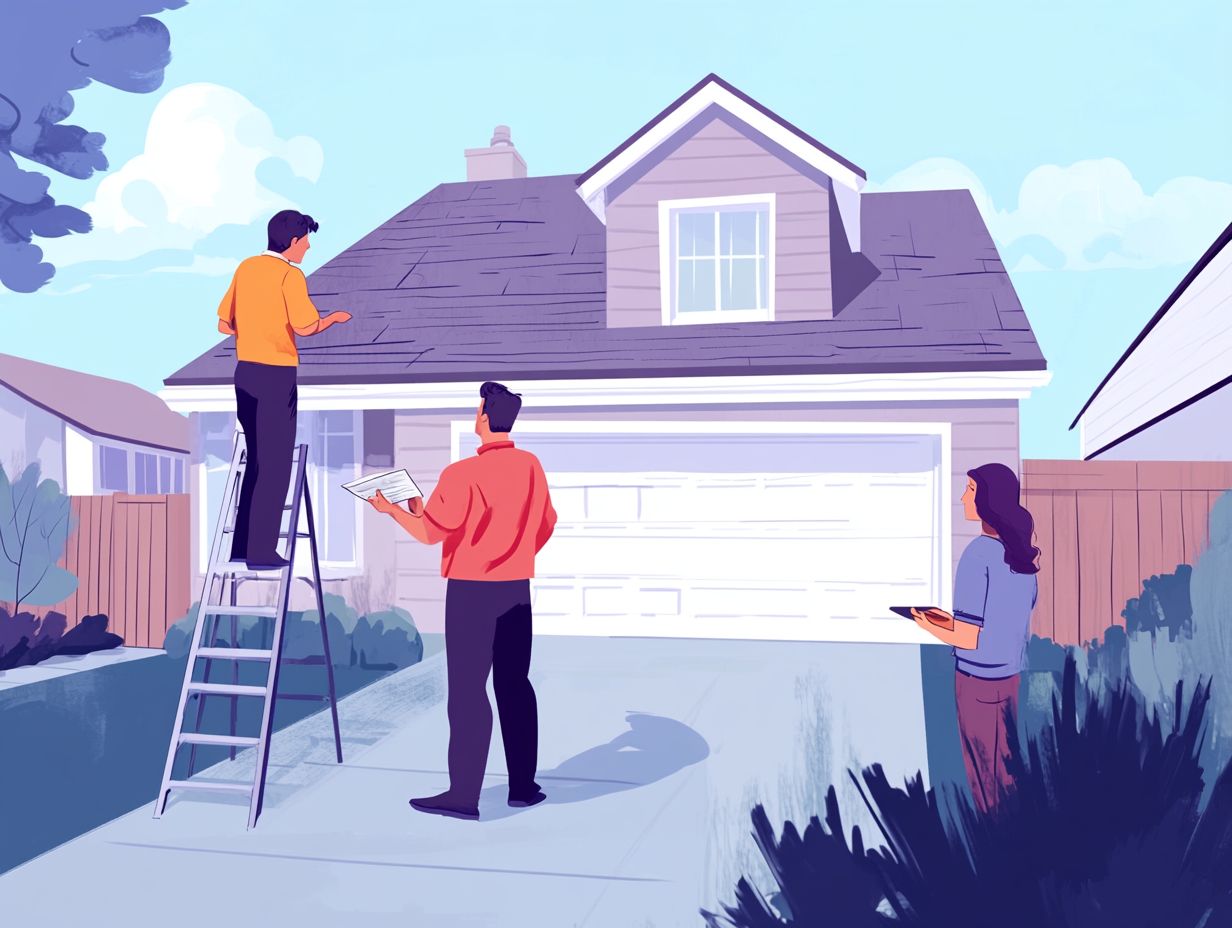
Home inspections are crucial! They provide buyers with a clear view of a property’s condition. Understanding the role of home inspections in real estate helps buyers make informed decisions and avoid unexpected costs later on.
Who is responsible for arranging a home inspection?
Typically, buyers arrange and pay for the home inspection. Sometimes, sellers may opt for an inspection before listing the home to address potential issues.
What does a home inspection cover?
A home inspection looks at the property’s structure, electrical, plumbing, heating, and cooling systems. It also checks for visible issues with the roof, foundation, and appliances. Some inspectors might also offer tests for termites or radon.
Can a home inspection affect the sale of a property?
Yes, it can! If major issues arise during the inspection, buyers may ask for repairs, request credit, or decide to walk away from the sale. Inspection results can serve as a powerful negotiation tool.
Do I need to be present for the home inspection?
While it’s not required, it’s highly recommended for buyers to attend. This allows them to ask questions and get a firsthand look at any issues. It also helps them understand the inspector’s findings better.
What if the home inspection reveals major issues?
If significant problems are found, buyers have options. They can negotiate repairs with the seller, ask for a price reduction, or choose to walk away. The best course of action depends on the issues’ severity and the sale agreement’s terms.



